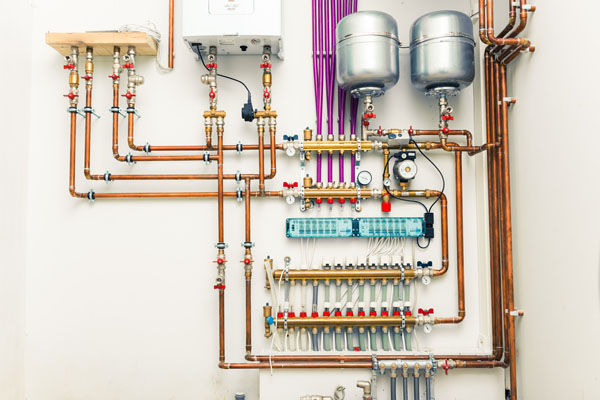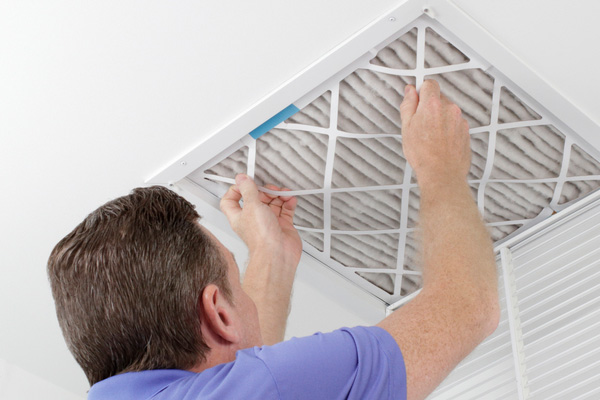What Is The Difference Between A Boiler And A Furnace?

Many homeowners are clueless about the differences between a boiler and furnace. It’s hard to blame them especially when both systems are built and designed to provide heating for a home or building. Although they have the same function, the differences are not to be denied. Since you only can choose a furnace vs. boiler, it means that you must figure out those differences. Your choice will depend on your specific heating needs and your home’s current setup.
Differences Between Boilers And Forced-Air Furnaces
Contents
- 1 Differences Between Boilers And Forced-Air Furnaces
- 2 Contact Miller Oil Company For All Your Home Heating Concerns
In this article, we discuss some of the basic differences between these two types of heating systems.
The Basics Of A Boiler
A boiler is a closed container that houses water or another liquid. The liquid is meant to be heated, the purpose of which is to generate vapor or steam. The boiler is a primary component of a heating system that relies on even heat distribution and emission.
The concept of using water or a similar form of liquid for heating is referred to as hydronic heating. It is incorporated in a radiator system. The system is made up of a boiler, radiators, pipe system, baseboard, and a circulator pump. Each component plays an indispensable role in the production of heat and its distribution to the different rooms in a house or building setting. A typical residential boiler system has several components based on the number of rooms that need heat.

The Basics Of A Furnace
Unlike the boiler, the furnace uses air to produce heat. The equipment works by distributing the heated air to the different rooms in a house or building. While the boiler is called the radiator system, the furnace goes by the name of ‘forced-air heating system.’ It forces cool air through the heat exchanger for it to be heated. The heated air passes through a series of ducts for distribution. Furnaces come in three types, namely the upflow, downflow, and horizontal. The fuel source includes electricity, oil, gas, or induction.
What Are The Differences Between A Boiler And A Furnace?
The most notable difference between a boiler and furnace is the way the systems operate. The boiler heats water inside a tank to produce warmth. It will push the hot water through a series of pipes installed all throughout the building or house. The hot water naturally heats the pipes, which in turn generates the required heat to warm each room. The boiler conveniently warms a living space if it produces steam or hot water constantly.
On the other hand, the furnace does not use water or liquid to heat a building or house. Instead, it relies on a heat exchanger to heat air. The air is circulated throughout the living space to keep it warm. Heat distribution is carried out by the blower motor that pushes the air through the ductwork and vents.

The Energy Efficiency Of A Boiler Vs. Furnace
Heating air requires more energy than heating water. In other words, furnaces are expected to consume more fuel within a period compared to boilers. Meanwhile, the purchase price of a boiler is slightly higher compared to a furnace, but it is expected to last longer. But then again, there are other factors that influence the longevity of your heating equipment, including the lack of maintenance.
Boiler Advantages And Disadvantages
Advantages
- Efficient: Boilers require less fuel to produce heat, which means that you’ll spend less to get comfortable during the cold months.
- Less Noise: A boiler doesn’t produce hot air and distribute it throughout a series of ducts. Therefore, you don’t expect it to produce a lot of noise when compared to a furnace.
- Heat Consistency: Hot water or vapor can produce a more consistent heat compared to heated air.
- Better Air Quality: Boilers heat water or liquid, not air. As such, they don’t carry with them airborne contaminants like dust, allergens, and pollens.
Disadvantages
- Heat Only Function: Boilers are efficient in heating homes, but that’s about it. The equipment cannot cool it during the summer. Although the furnace only produces heat, the ductwork can be used for the installation of a central cooling system.
- Installation: A boiler is complicated to install. It typically requires the services of a professional.
- Slow Time Adjusting to Changes in Temperatures: It will take a considerable amount of time for a boiler to transition the moment there’s a change in the thermostat.
- Potential for Leakage: Old and damaged boilers become prone to leakages. It’s obviously because of the water or fluid in the tank. The presence of a leak could result in water damage.
- Difficult Conversion: The switch to a boiler system to a furnace may seem too much of a hill to climb for most property owners. It is because the installation of the ductwork and other components is quite expensive.

Furnace Advantages And Disadvantages
Advantages
- Flexible: A furnace is versatile enough to use a handful of fuel sources, including heating oil, propane, natural gas, and electricity. You can also invest in a modern variant powered by geothermal or solar energy.
- Fast Acting: Furnaces generate heat quicker than boilers. In other words, they can warm up your home within a shorter span of time.
- Competitive Purchase Price: Furnaces are quite popular in this part of the world, which is why you expect the price of buying one to be competitive because of the competition among manufacturers.
- Reduced Potential for Leaks: A furnace leak means an air leak, not water. There’s no risk of water damage.
- No Freezing Hazard: Furnaces are ideal in areas that experience extreme winter temperatures. The reason is that furnaces minimize the risk of frozen pipes. Boilers use water to heat, which is why there’s an increased chance of freezing pipes that could burst.
Disadvantages
- Noisy: Since furnaces use blowers to distribute heater air, you expect them to produce some noise.
- Heat Consistency Issues: When it comes to consistency, heated air is inferior compared to hot water or steam. Therefore, homes that use a furnace tend to have some rooms warmer or cooler than others.
- Air Quality: When you ignore the importance of cleaning or replacing air filters, you’ll suffer from poor indoor air quality.
Contact Miller Oil Company For All Your Home Heating Concerns
 The choice between a boiler and furnace depends on your heating needs and the setup you have at home. If you’re contemplating on replacing an outdated heating system, we’re here to help you decide which one is the best boiler or furnace for your specific needs. We will factor in the efficiency of the equipment and the possibility of saving money on maintenance costs. If you can’t decide which system is suitable for your home, all you must do is call your local HVAC contractor for help.
The choice between a boiler and furnace depends on your heating needs and the setup you have at home. If you’re contemplating on replacing an outdated heating system, we’re here to help you decide which one is the best boiler or furnace for your specific needs. We will factor in the efficiency of the equipment and the possibility of saving money on maintenance costs. If you can’t decide which system is suitable for your home, all you must do is call your local HVAC contractor for help.
Miller Oil Company can give you the expert advice you need for a new heating system. We offer the most competitive prices in the area. Our team is composed of NATE certified technicians who will be at your service when it comes to all types of HVAC needs. We offer all our clients with a comprehensive work guarantee. Call Miller Oil Company today for your free, in-home estimate.
Click here to contact us today or give us a call at (860) 745-0326 if you have any questions.